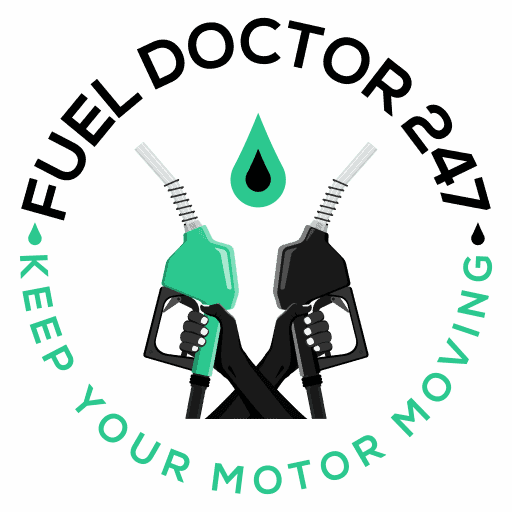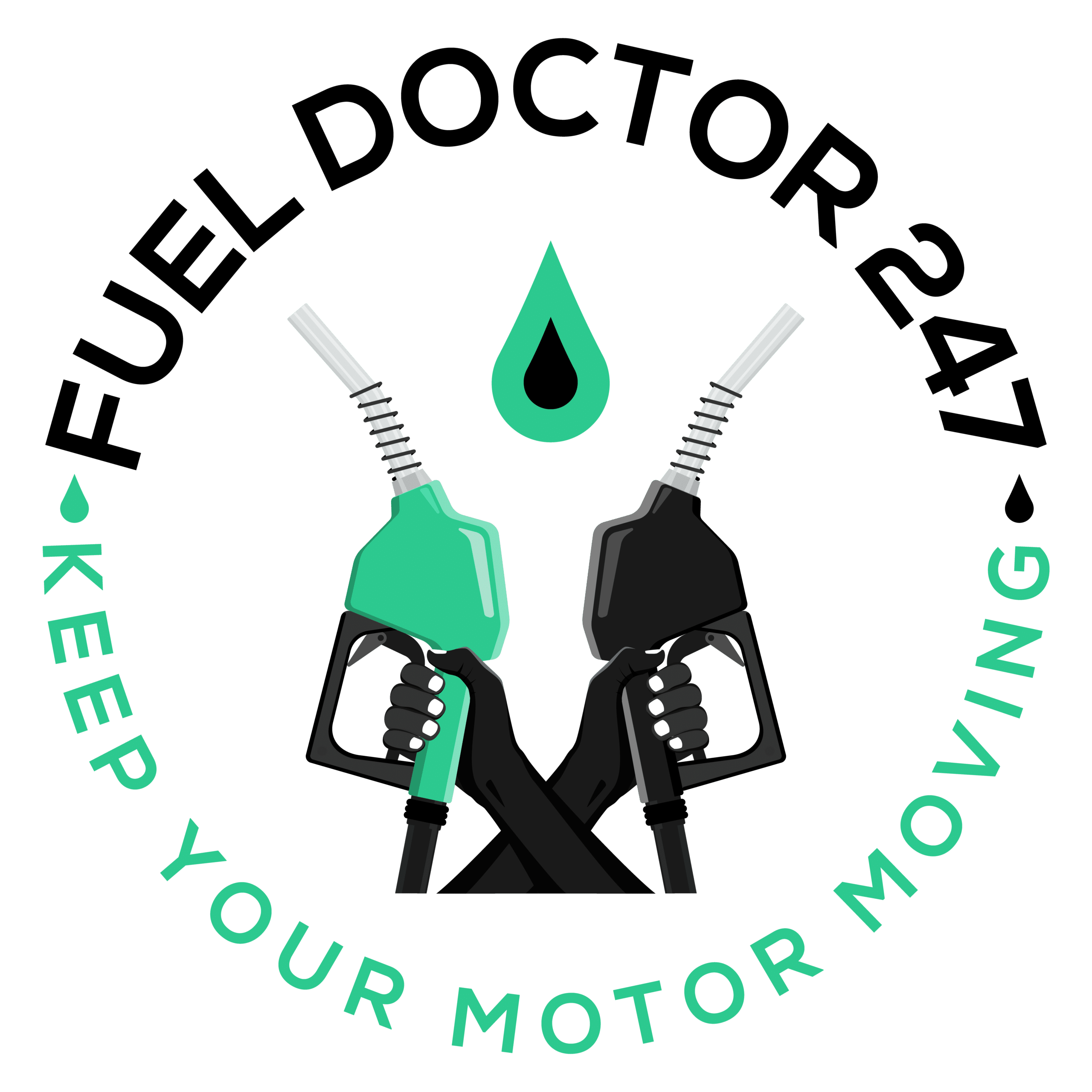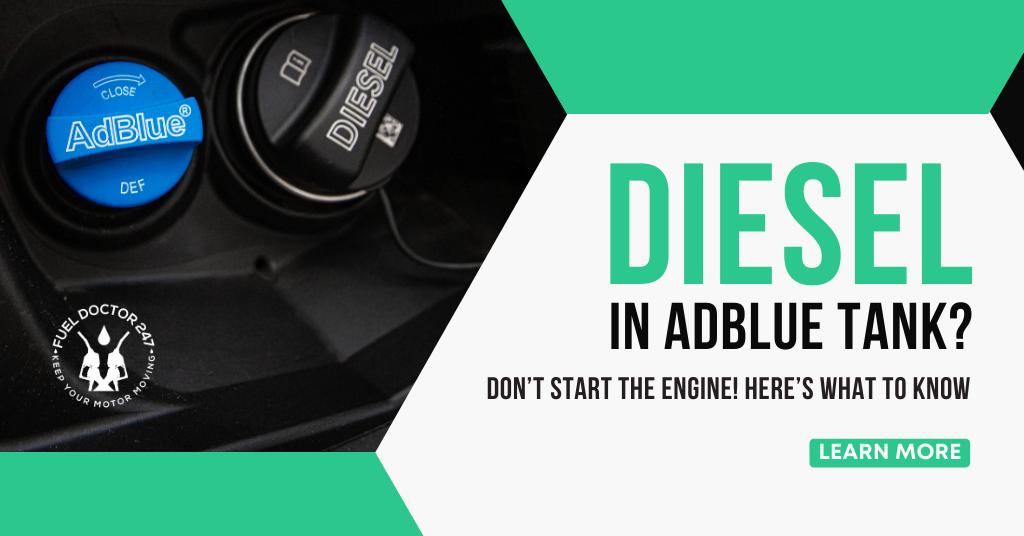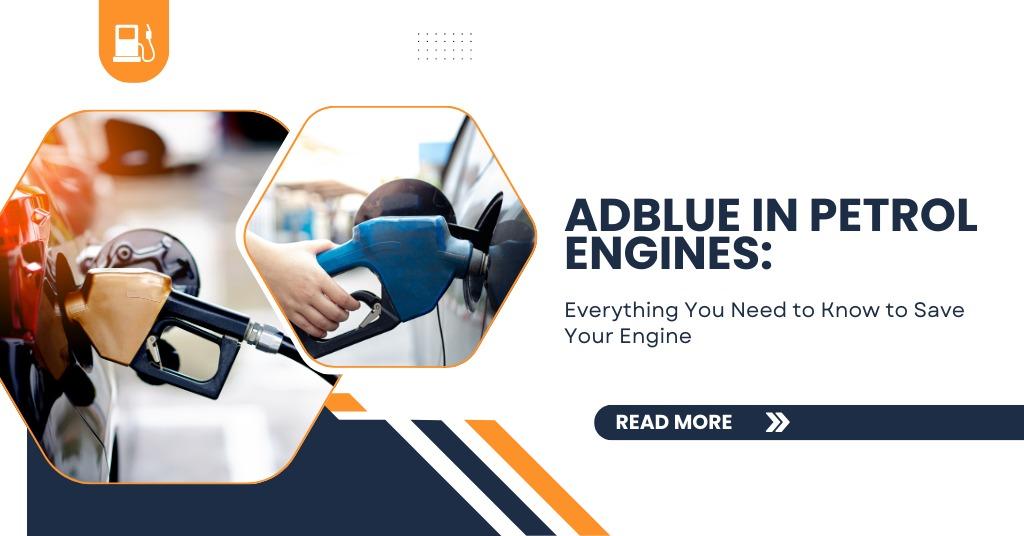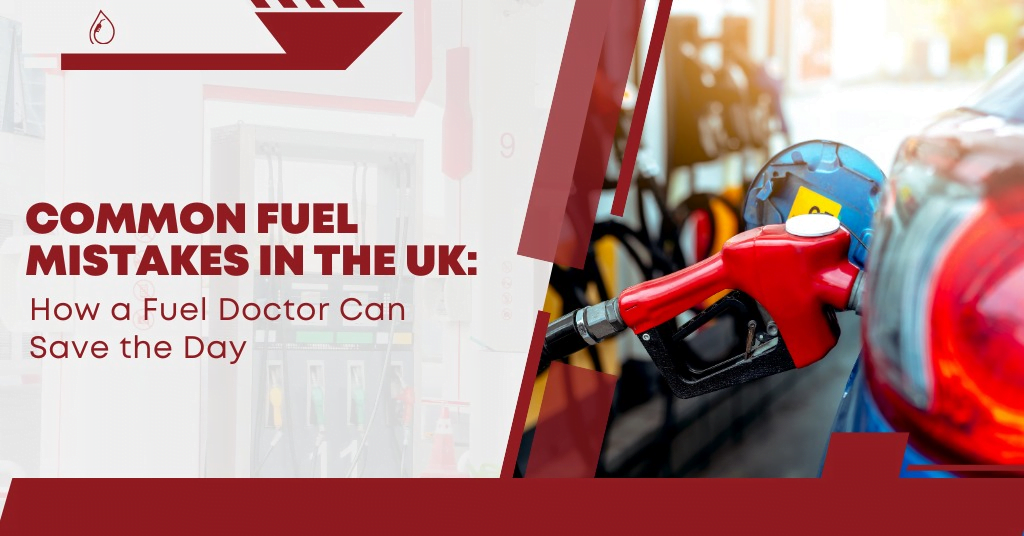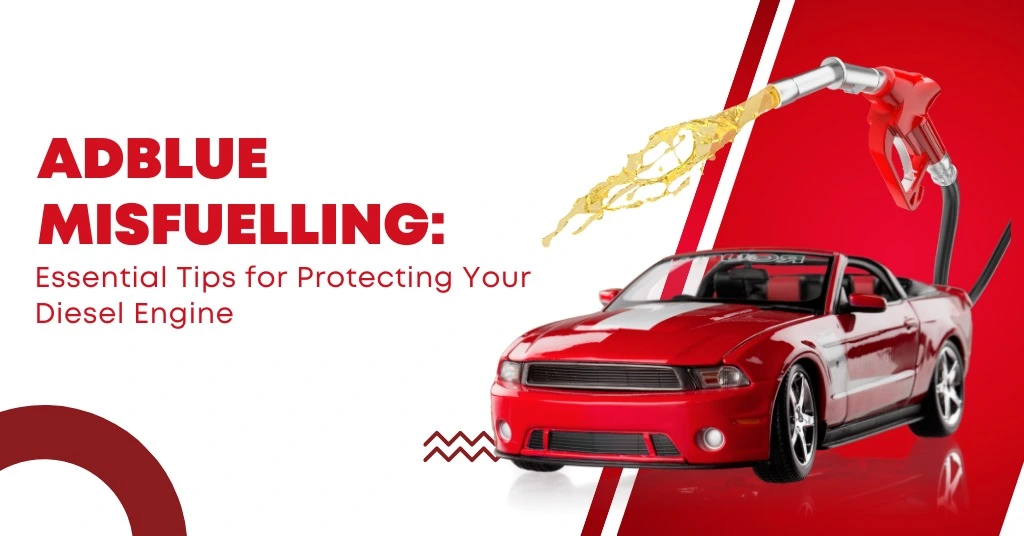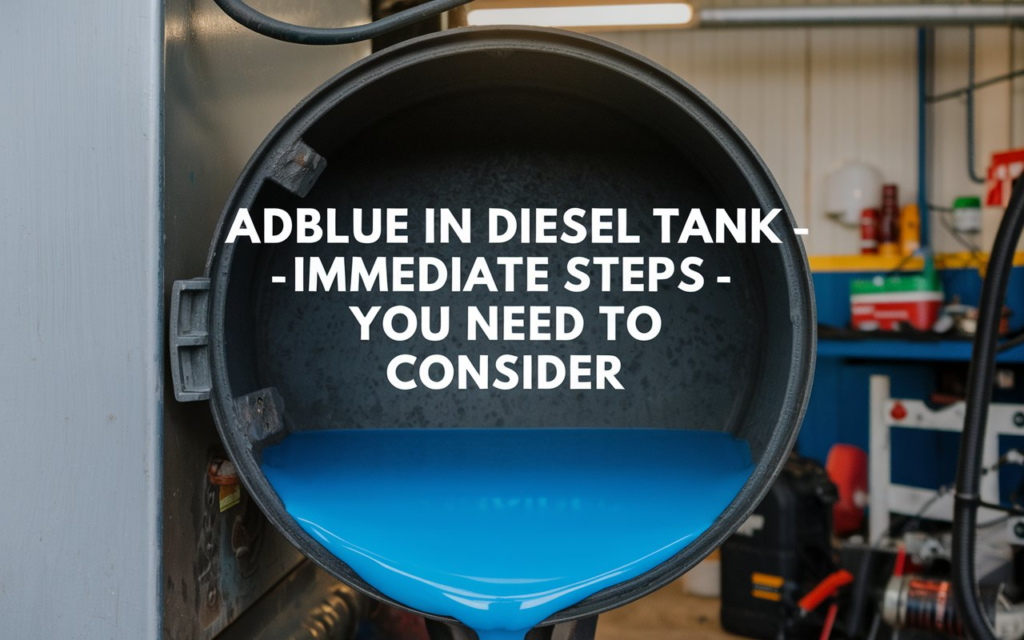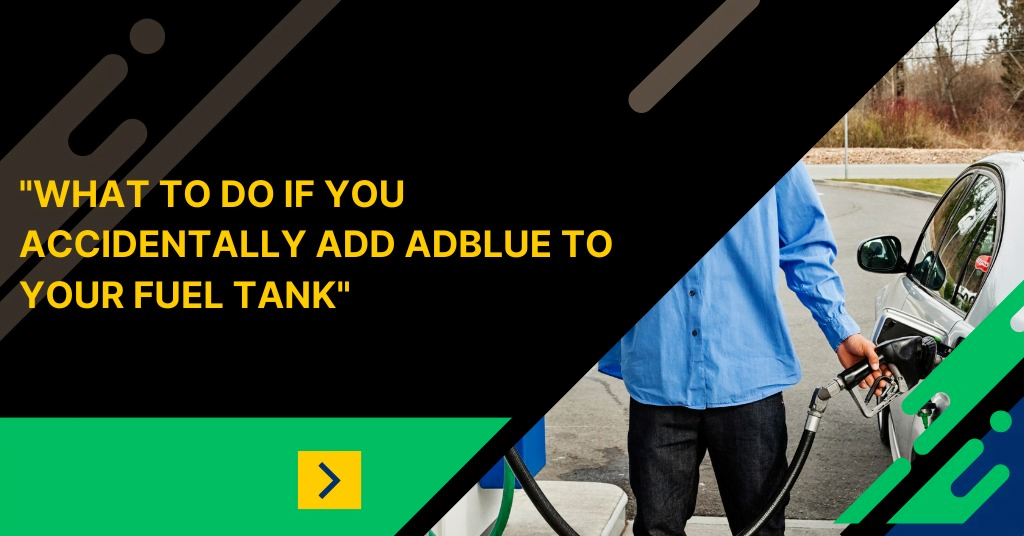AdBlue and diesel have different fuel properties and are designed for separate fuel tanks. When, by mistake, you put diesel in the AdBlue tank, it turns the game and severely damages the Selective Catalytic Reduction (SCR) system. The circulation of diesel fuel in the AdBlue tank affects engine performance and causes corrosion and blockage. Sometimes, it leads to complete engine failure and you must replace the whole engine. This comprehensive guide will explain the consequences of fuel mix-ups, what immediate steps you need to take, and the costs of repairs.
A small amount of Diesel in the AdBlue Tank (SCR Damage)
AdBlue is a transparent fluid that is equipped with a Selective Catalytic Reduction (SCR) system, a modern technique that is designed for modern vehicles to control the toxic emission of nitrogen which causes air pollution. SCR system is beneficial for heavy-duty vehicles such as buses and trucks and plays a considerable role in reducing unsafe emissions making the atmosphere environmentally friendly. When you put diesel in the tank of AdBlue, it not only disrupts the emission system but also damages the stability of the car engine.
What Happens if You Put Diesel in the AdBlue Tank?
Diesel fuel has lubricated properties and this lubrication produces greasy substance among the engine components that help the engine run smoothly. AdBlue, on the other hand, is a type of fluid used for toxic emission reduction from vehicles. If you put diesel in AdBlue tank, it can cause long-term panic. Below is a short breakdown of what happens when you commit the wrong fuel mistake:
1- Contaminates SCR System:
Although it happens unconsciously when you mix diesel with AdBlue. However, don’t be distracted for a moment while filling your fuel tank to avoid significant damage. When you do this, the diesel contaminates the SCR system and puts your car in severe danger.
2- Cause Engine Blockage:
Diesel, due to its thick properties, can damage and clog engine components such as catalytic converters and injectors when it enters the AdBlue tank.
3- Corrosion of Components:
When you accidentally add diesel fuel to the AdBlue tanks, it quickly circulates throughout the engine components and causes corrosion in the SCR system. This common mistake can lead to significant financial loss if not addressed promptly.
4- Engine Failure:
This is the costly damage that is done by the wrong fueling. If you start the engine after filling the diesel in the AdBlue tank, the result ultimately is engine failure. This misfuelling mistake also affects the process of nitrogen emission which causes air pollution.
What to Do if You Put Diesel in the AdBlue Tank?
After realizing the misfuelling error you need to take into account immediate actions to avoid the intensity of the situation. Here is what you need to do to come out of the panic:
· Do Not Start the Engine:
Starting the engine after filling your car tank with the wrong fuel can lead to immense damage by circulating diesel into the SCR system. This will also create mechanical issues.
· Contact Professional Assistance:
Avoid self-assistance after misfuelling as it increases the intensity of the problem. Let the professional handle the situation with expertise. These mechanics, with experience, resolve the issues preventing further damage. The wrong fuel recovery services are available around the clock for quick assistance.
· Consider Tow Truck:
Don’t drive the car with the wrong fuel as it will increase the complexity. Arrange a tow truck to the safe reach of the car at the repair station. Apart from that, your vehicle may affect the traffic flow so considering the tow truck is essential.
· System Flushing:
Thorough drainage of diesel fuel from the AdBlue tank may ensure the stability of your car engine and the SCR components. The professional technicians will expertly handle the process and help bring your vehicle back on the road again.
Potential Costs of Diesel in the AdBlue Tank
Diesel in AdBlue tank cost of fixing such as draining and flushing the system can range from $ 200 to $ 500, however, it depends on the severity of the situation and may be more or less everywhere in the UK. Types of repair processes include:
- Through Drainage & Flushing the System
- Replacing Damaged Parts and components
- Catalytic Converter Replacement
- The Whole Engine Replacement
How to Avoid Diesel in AdBlue Tank Mistakes?
Misfuelling is a costly mistake, and you need to avoid committing it again and again to prevent damage. Below are a few considerations that may help you stay away from frequent wrong fueling mistakes:
- Clear Labeling Placement:
- Separate Diesel and AdBlue Containers
- Consider Professional Filling Stations
Conclusion
Accidentally putting diesel in the AdBlue tank affects the performance of the engine and SCR system (this reduces the emission of exotic nitrogen oxide) making the vehicle eco-friendly. After realizing your mistake, just take some quick actions to prevent further damage. Don’t start the engine, consider a tow truck for safe reach, contact professional help, and ensure thorough drainage of wrong fuel by the expert fuel fixer. With a driving test check the authenticity of the engine and let the car hit the road smoothly.
FAQS
Q1- What happens when you mistakenly put diesel in the AdBlue tank?
A- When you mistakenly fill your AdBlue tank with diesel fuel, it affects the performance of the Selective Catalytic Reduction (SCR) which helps reduce the toxic emission of nitrogen. This mix-up of wrong fuel also damages the engine components and causes corrosion and blockage.
Q2- Can I drive after putting diesel in the AdBlue tank?
A- No, driving with diesel in an AdBlue tank will allow the diesel fuel to circulate to the entire engine and cause severe damage. This will also harm the SCR system and can cause significant financial damage.
Q3- Will a small amount of diesel in the AdBlue tank cause damage?
A- Of course, a small amount of diesel fuel can destroy the stability of your vehicle’s SCR System which helps reduce the toxic emission. After knowing the mishap, quick actions can minimize the damage.
